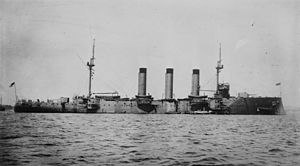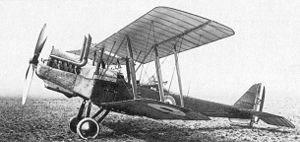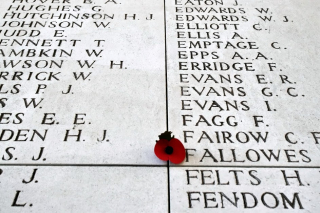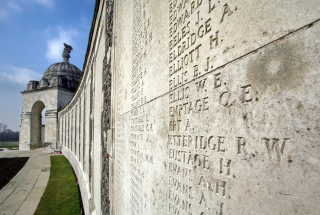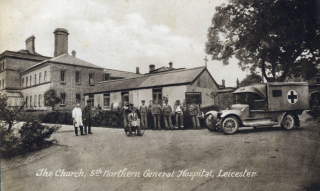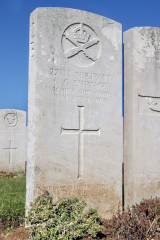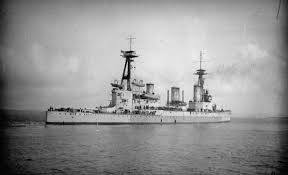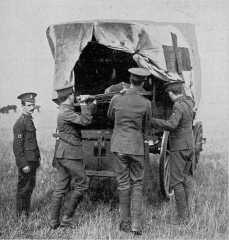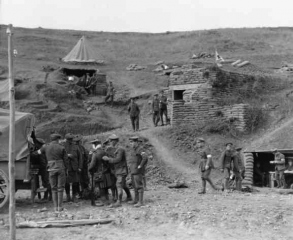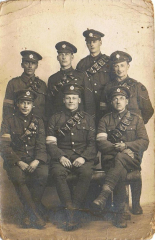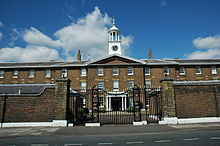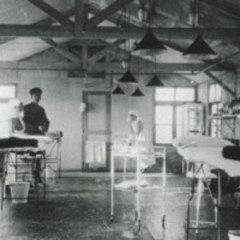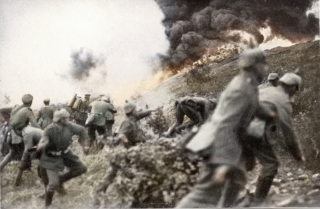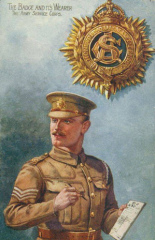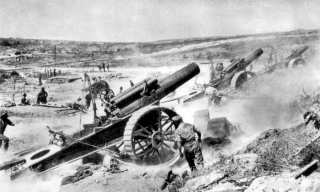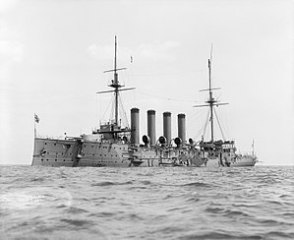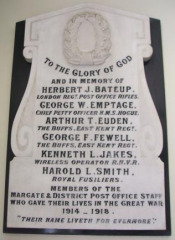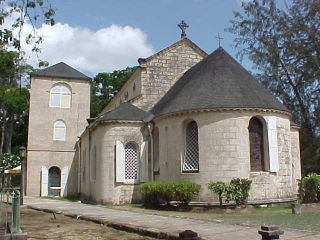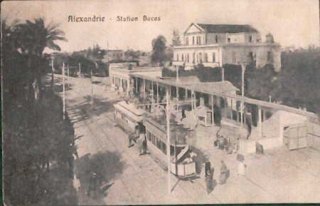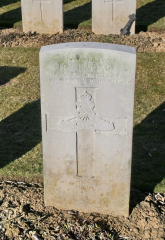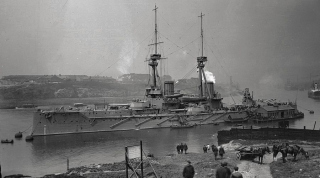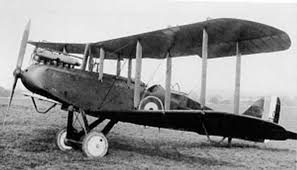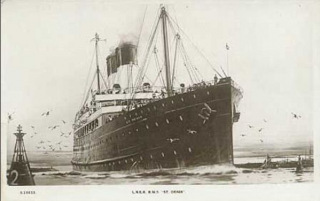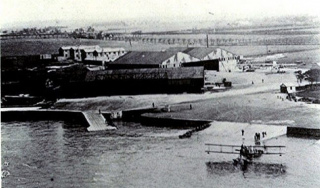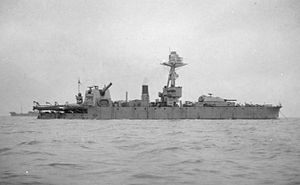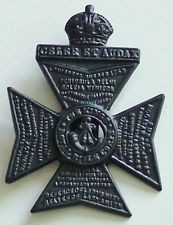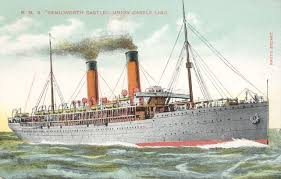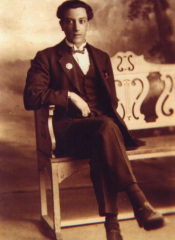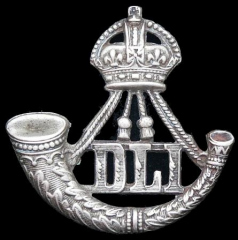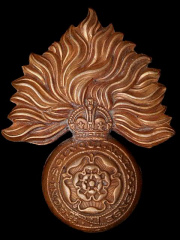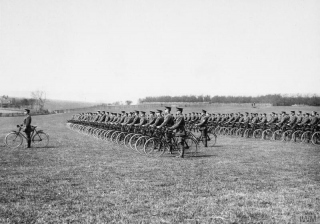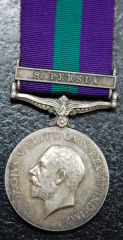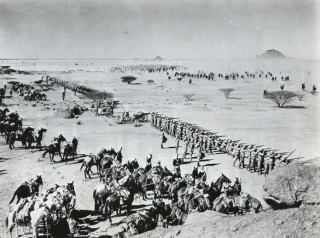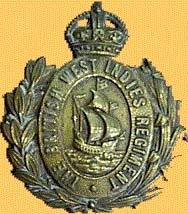As the Emptage military historian and medal collector, I have researched the records of all the Emptages and Emtages who served in World War One or rather, those I could find listed.
Not only were about 60% of soldiers’ Service Records lost or irretrievably damaged during bombing in WW2 but the records of those who continued to serve in the military after 1920 are not yet available for public access (though next of kin may do so). So I cannot guarantee that I have found all the Emptages and Emtages who served.
Some of the men were career soldiers or sailors, with long histories in the forces before the war, some voluntarily enlisted at the outbreak of war. Some may have been conscripted.
The Emtages, whether from Barbados or New Zealand, were descended from Barbadian Emptages.
The service records prior to and during WW1 vary immensely in the detail which they contain. In some case, the medal roll index card is all that survives, perhaps giving the name of the regiment but no other details which would allow us to identify the person.
I will be very pleased to hear from anybody who can add to the information which we have, either about somebody listed or about somebody whose record is not available through loss, damage or continuation of service beyond 1920.
And I would like to hear from anybody who is holding or knows the location of any Emptage or Emtage medals so I can remove them from my list of missing medals. You can .
Most of the personal biographical details were taken from the family trees, which were researched and compiled by David Lindsey Emptage.
Notes:
Where an actual date is not given for birth, marriage or death, the month stated generally refers to the quarter in which the event was registered, ie January to March, April to June, July to September, October to December.
And unless the actual place is known, the place noted is that of the registration district in which the event took place, not necessarily the town.
Ada Matilda Emptage (nee Maxwell) 1873 – 1946
Ada Emptage joined the Womens Royal Air Force on 29 October 1918 and served until 2 August 1919, as a cook. Her service number was 24717.
She was born in Chelsea, London in 1873, to John Maxwell, a carpenter, and Sophia Chadwell. In 1901 she was working as domestic cook in Kensington, London and then in Folkestone, Kent.
Ada married John Edward Emptage in 1917, the son of George Emptage, an
agricultural labourer born in Ramsgate in 1883, and Ann (Hughes)
Ada and John emigrated to New Zealand in 1922 where John became a gardener in South
Auckland. He died in 1943 and Ada died three years later. There are no known children.
Albert John Emptage 1895 – 1931
Albert John served in the Royal Army Medical Corps from 6 August 1915 until 6 July 1919 when he was discharged as no longer fit for military service. His service numbers were 2799 and 545763. It is believed he served with the 2nd London Sanitary Company in Macedonia. He was awarded the British War Medal, the Victory Medal and the Silver War Badge.
The Sanitary Companies were the part of the RAMC concerned with military hygiene and sanitation, tasked with the vital role of preventing disease and death. Their work included the inspecting and disinfecting of billets, water purification, the construction of latrines and burying the dead.
Albert John was born on 30 November 1895 in Wandsworth, London, the son of Albert John
Emptage, a police constable and Alice Edith Sears, grandson of Albert John Emptage, the
well known mariner and lifeboat man of Margate.
In 1922 he married Florence Blake Jenkin and they had two children together. Albert died in
Willesden, London, in 1931 aged just 35.
Alfred Austin Emptage 1860 – 1936
Alfred Austin Emptage first enlisted in the Royal Navy as a boy sailor 2nd class in February 1875 aged 15 and over the next 18 years he served on many ships around the world. He rose to the rank of acting chief petty officer but was later disrated for incompetency. He finally retired from the RN in December 1897 with the rank of petty officer.
In August 1914 Alfred was recalled and spent most of WW1 in various shore establishments, probably as an instructor. He also spent 12 months on HMS Suffolk, an armoured cruiser patrolling the east coast of the USA.
For his WW1 service he was awarded the 1914/15 star, the British War Medal and the Victory Medal. His full naval career is still being researched.
Alfred Austin was born in October 1860 in Westminster London, to Henry John Emptage, a tailor, and Susan Elizabeth Austin.
In June 1871 his brother, Henry Joseph Emptage, emigrated to the USA eventually settling in California.
In May 1896 Alfred Austin married Tryphena Alice Cock in Devonport, Devon and they had one son, Austin Alfred Emptage born in May 1897. Both father and son served in WW1.
Alfred Austin died in 1936 aged 75, registration district Totnes, Devon.
Alfred Healing Emptage 1874 – 1927
Alfred Healing Emptage joined the Royal Navy in January 1890 aged 15 as a boy 2nd class although his full service record only starts from the age of 18. He then embarked on a career as a signalman eventually becoming a yeoman signaller.
On 28 December 1908 he was on board HMS Lancaster in the Mediterranean when a massive earthquake hit Messina, a city in Sicilly. HMS Lancaster, together with other ships in the area, was dispatched to offer aid. The Italian Royal family decided that a special medal be struck and awarded to all who came to the aid of the people and so it was awarded to Alfred.
During WW1 he served on several ships including HMS Magnificent, a pre-dreadnought class battleship, and HMS Royal Arthur, a first class cruiser. Much of his time was spent with the Home Fleet in Scapa Flow. He finally left the Royal Navy in March 1919 after a career lasting almost 29 years.
He was awarded the 1914/15 star, the British War Medal and the Victory Medal for his service in WW1. His full RN career is still being researched.
Alfred Healing Emptage was born on the 9th June 1874 in Newington, Sittingbourne, Kent, the son of John Alfred Emptage, a railway signalman, and Louise Ann Wilks.
In October 1911 he married Selina Mary Rivers in Medway, Kent. Their only child was born in June 1913. After leaving the RN Alfred became a railway porter and joined the National Union of Railwaymen. Alfred died on the 18th July 1927 aged 53 while living in Rochester, Kent.
Alfred William Emptage 1889 – 1964
Alfred enlisted in the Royal Navy in 1904 aged 15 and was discharged in June 1910 at his
own request. In January 1915 he enlisted in the 2nd line reserve of the 17th Battalion of The
County of London Regiment, the Stepney and Poplar Rifles.
Alfred was later transferred to the Royal Defence Corps which was formed in 1916 and was
composed of soldiers who were too old or unfit for active front line service. The role of the
corps, which was a WW1 version of the Home Guard, was to provide troops for security and
guard duties in the United Kingdom. Alfred served in the 67th Protection Company.
He was finally discharged in April 1919 but as he hadn’t served overseas he had no medal entitlement.
Alfred William was born on the 31st August 1889, in Colchester, Essex, the son of George Herbert Emptage, a driver in the Royal Artillery, and Ada Susan Ware.
In 1911, after his discharge from the Royal Navy, he became a domestic servant, living in Shoreditch, London. He married Lavinia Edna Nunn in London in June 1921 and they had one son, Derek Alfred Frank Emptage, who died aged just 16.
In 1939 Alfred William was a civil servant living in Lilburne Gardens, Woolwich, London. He is described as ‘blind’ although it is not known how or when he became blind or if it was in any way related to his military service.
Alfred William Emptage died on 26 May 1964 in Woolwich London aged 74.
Arthur Edward Emptage 1898 – 1974
Arthur enlisted on 9 October 1916 at Woolwich and served with the 2/9th Cyclist Battalion of the Hampshire Regiment and the 34th Battalion of the Middlesex Regiment. He embarked for France on 5 July 1918 and served on the Western Front.
Cyclist battalions were first formed in the Second Boer War when it was found that bicycles were lighter, quieter and logistically easier to manage than horses, making them ideal for reconnaissance and communications work. They were found not to be so useful in the trenches of WW1.
On 20 October 1918 he received a gunshot wound to the neck and was treated at the No 2 Australian Hospital in Boulogne before returning to England on the 26 October 1918. He spent seven weeks recovering at the county of Middlesex War Hospital in St Albans before being finally discharged on the 12 February 1919.
He applied for a war disability pension but his application was rejected. For his war service he was awarded the British War Medal and the Victory Medal.
Arthur Edward Emptage was born in 1899 in Woolwich, London to George Herbert Emptage, a driver in the Royal Artillery, and Ada Susan Ware, he was the brother of Alfred William Emptage.
After the war he became a train conductor and married Emily McGuire in 1921. Their only child, a daughter, was born in 1922 but sadly died a few hours after the birth. In 1939 he was living in Woolwich and was employed as a train conductor for London County Council.
Emily died in March 1953 and in March 1957 Arthur married Hilda Doris Taylor, a spinster. Arthur died in April 1974 and was cremated in Greenwich, London.
Austin Alfred Emptage 1897 – 1968
Austin served in the Royal Naval Volunteer Reserve from 30 January 1916 until 30 June 1917 when he joined the Royal Naval Division. The RND was an infantry division which was formed from Royal Navy and Royal Marine volunteers and reservists who were not needed for service at sea. It was later named the 63rd (Royal Navy) division.
On 19 December 1917 he was discharged from the RND to enable him to re-enlist in the Royal Flying Corps on 20 December as a fitter in 109 Squadron.
On 11 September 1918 he was transferred to 6 Squadron and on 6 December 1918 he was transferred to 14 squadron where one of the aeroplanes he worked on was the Royal Aircraft Factory RE8.
On 26 February 1919 he was transferred to the RAF reserve and discharged. He was awarded the British War Medal.
Austin Alfred Emptage was born on the 13 May 1897 in Stoke Damerel in Devon to Alfred Austin Emptage, a petty officer in the Royal Navy, and Tryphena Alice Cock. Both father and son served in WW1.
In September 1921 he married Minnie Augustine Blanche Horsham and on the 27 December 1923 the first of their two children was born.
In 1939 Austin was living in Plymouth and was employed as an electrical fitter. He died in 1968 in Plymouth, Devon aged 71.
Charles Edwin Emptage 1890 – 1917
Charles Edwin Emptage enlisted in the 16th Lancers during WW1 and was later transferred to the 15th Battalion of the Royal Warwickshire Regiment. He arrived in France on the 17 October 1915 and died of wounds on the 10 October 1917 aged 26.
Charles is remembered on panel 23-28 and 163a Tyne Cot Memorial in Belgium. He was awarded the 1914/15 Star, the British War Medal and the Victory Medal
He was born in December 1890 in Broadstairs, Kent to William Emptage, an agricultural labourer, and Jane Chapman and baptised at St Peter in Thanet Church, Broadstairs.
Charles Frederick Emptage 1892 – 1915
Charles Frederick (Charley) Emptage enlisted as a special reservist in the 3rd Battalion Royal Warwickshire Regiment on 6 February 1909 having mis-stated his true age on the attestation paper. As a special reservist he underwent 6 months full time training and then had 3-4 weeks training per year and agreed to be called up in the event of a general mobilisation.
On 17 December 1909 he re-enlisted in the East Kent regiment, ‘The Buffs’ and served in Singapore and India before returning home on 16 November 1914.
Charley arrived in France on 17 January 1915 but was reported missing on 16 February 1915. On 24 June 1918 he was declared as having died on or after 16 February 1915. He is remembered on panel 12 and 14 Ypres Menin gate memorial, Belgium. For his service in WW1 he was awarded the 1914/15 Star, the British War Medal and the Victory Medal.
Charles Frederick was born on 3 June 1892 at East Farleigh, Kent to Henry Thomas Emptage and Malbry Jane Wilson. He never married. Before enlisting Charles was employed as a baker.
Read more about his life here.
Clifford Walter Emptage 1890 – 1964
Clifford Walter Emptage enlisted in the reserves in 1908 at Ashford in Kent, initially in the East Kent regiment and then the 21st London regiment. At the outbreak of war he was mobilised and arrived in France on 15th March 1915.
On 5 November 1915 when in the trenches at Hulluch in Pas de Calais he was wounded when a large piece of shrapnel landed on his foot. He returned to England and was treated at the 5th Northern hospital in Leicester.
Clifford was finally demobilised on the 15 August 1919 and was awarded the 1914/15 star, the British War Medal, the Victory Medal and the Silver War Badge for his service.
Clifford Walter Emptage was born on 10 June 1890 at Margate, Kent to Clifford Herbert Emptage, a plumber, and Ellen Elizabeth Parrott Fox. Before the war he worked as a solicitor’s clerk in London, an occupation he resumed after the war.
He was the brother of Cyril George Emptage who died of his wounds in 1918.
Clifford married Dorothy Amy Mothersole on the 26 December 1922 and they had one child, June Emptage, born September 1924.
By 1939 Clifford had become a solicitor and was living in Lambeth with his wife. He died on 24 June 1964 aged 74 in Chichester Sussex.
Read more about his life here.
Cyril George Emptage 1894 – 1918
Cyril George Emptage enlisted in the 21st London Regiment, the First Surrey Rifles. He was transferred to the Machine Gun Company and whilst serving with the 40th Battery he died of his wounds on the 9 April 1918.
He is buried in the communal cemetery at Aire and was awarded the 1914/15 Star, the British War Medal and the Victory Medal.
Cyril was born in February 1894 at Westgate on Sea, Margate, Kent to Clifford Herbert Emptage, a plumber, and Ellen Elizabeth Parrott Fox. Before enlisting he was an apprentice engineer.
He was the brother of Clifford Walter Emptage.
Read more about his life here.
Edgar Henry Emptage 1880 – 1920
Edgar Henry Emptage served with the 7th, 8th and 11th Battalions of the Royal Sussex Regiment and was awarded the British War Medal and Victory Medal for his service.
He was born on 7 November 1880 in Deptford, London to James Wordsworth Emptage, a fishmonger and fruiterer, and Jane Lydia Scafe. Prior to his enlistment he was an insurance agent. Edgar died on 6 September 1920 aged 39.
Edmund Lashley Mayall Emtage 1889 – 1961
Edmund Lashley Mayall Emtage was appointed a 2nd lieutenant on probation in the Royal Flying Corps on the 12 January 1917 and was transferred to the special reserve on the 14 March 1917.
Having served his probationary period, he was confirmed as a 2nd lieutenant on 3 April. He was an engineer by background and he served in the technical arm of the RFC. Edmund was promoted to Lieutenant in July 1919, his official title being Lt. Tech. Eng. He left the RAF sometime before 1922 to resume his career in aircraft engineering.
Edmund was born on 17 August 1889 in Devon to Edmund Walter Emptage, a doctor, and Louisa Mayall Gooding Bynoe.
After attending Epsom School from 1900 to 1907 he studied a Mechanical and Electrical Engineering course at Northampton Engineering Day College in London from 1908 to 1915. He was admitted as an associate member of the Institute of Electrical Engineers in 1916.
After leaving the RAF Edmund resumed his career in engineering and in 1922 he was in charge of the test and development of experimental engines. He was working as the representative of the Director of Research and of the Royal Aircraft Establishment at Farnborough.
Edmund died in 1961 at Sanderstead, Surrey, aged 71.
Edmund Walter Emptage 1890 – 1971
Edmund Walter Emptage enlisted in the Royal Navy on 15 October 1912 for a period of 12 years, his RN trade being a stoker.
He spent the whole of WW1 serving on HMS Indomitable, an Invincible class battlecruiser. This ship saw a considerable amount of action including hunting the German ships Goeben and Bresslau in the Mediterranean when war broke out and bombarding Turkish fortifications protecting the Dardanelles before the British declared war on Turkey.
She helped sink the German armoured cruiser Blucher during the battle of Dogger Bank in 1915 and damaged the German battlecruisers Seyditz and Deffflinger during the Battle of Jutland in 1916.
Edmund left the RN in October 1924 on completion of his 12 year period of engagement, he was suffering from astigmatism in both eyes and therefore was unsuitable for further service.
He was awarded the 1914/15 Star, the British War Medal and the Victory Medal for his WW1 service.
Edmund was born on 27 August 1890 in Chislet, Kent to George Albert Emptage and Lizzie Griggs.
He married Esther Mary Hudson on 25th August 1923. They had two daughters and a son. In 1939 he was working as a labourer and lived in Westgate-on-Sea, Margate. Edmund died in 1971 in the Chatham registration district of Kent aged 81.
Edward Joseph Emptage 1891 – 1930
Edward Emptage enlisted as a private in the Royal Army Medical Corps on 9 August 1914 giving his age as 23 years and 5 months and his trade as steward and was assigned to South East Mounted Brigade Field Ambulance.
He was promoted to corporal on 14 September 1914 and on 8 October 1915 he arrived at Gallipoli. Soon after this, on 28 November 1915, he was appointed sergeant, a rank he held for the remainder of his military service.
On 6 February he arrived in Egypt as part of the Egypt Expeditionary force where he remained until arriving in France on 2 June 1918. After only two months in France he returned to England for two weeks for a well deserved rest before returning to France on 17 August and finally returned to England on 16 January 1919.
He was discharged on 31 March 1920 and awarded the 1914/15 Star, the British War Medal and the Victory Medal.
Edward Joseph Emptage was born on 7 May 1891 in Margate, Kent, to John Edward Emptage, a carpenter, and Harriet Eliza Ashford who were living at 29 Byron Road, Margate. Before enlisting Edward was employed as a footman in Knightsbridge.
He became a father in November 1916 when his fiancée Lillian Alice Webb gave birth to their son Frederick Harold Emptage. They married on 6 August 1918 in Rye, Sussex.
After the war Edward was employed by the South Eastern and Chatham Railway. He later became a self employed grocer and died on his round in Cheriton, Kent on 4 June 1930 aged 39.
Read more about Edward’s life here.
Edward Lindsay Emptage 1890 – 1971
Edward enlisted on the 4th September 1914 in the Royal Army Medical Corps, giving his age as 23, occupation as carman and address as the parish of St Johns in Margate.
He joined South Eastern Mounted Brigade Field Ambulance as a driver.
In July 1915 he was treated for syphilis and spent 31 days in hospital in the military hospital in Bulford.
He was transferred to 666 Company of the Army Service Corps on the 31 March 1916 and in August that year he arrived in Salonica.
In March 1917 Edward was admitted to number 28 Casualty Clearing Station at Karasculi with malaria. He was later transferred to 799 Auxiliary Horse Transport Company.
Edward returned to England on 18th June 1919 on HMT Huntspill and was finally demobilised on 19 July 1919. He was awarded the British War Medal and the Victory Medal.
Edward Lindsey Emptage was born on 9 August 1890 at Byron Road, Margate, Kent to George Emptage, a boatman, and Mary Ann Foreman.
In September 1919 Edward married Mary Ann Savill and they had four daughters and one son. In 1939 he was living at 33 Byron Road and was employed as a lorry driver.
He died on the 19th July 1971 and is buried in Margate Cemetery.
Edward Lindsey Emptage 1892 – 1966
Edward Lindsey Emptage was a career soldier and was serving in the Royal Engineers in a signal company when war broke out. His unit was quickly dispatched to France, arriving there on 22 August 1914.
The photograph shows him seated in the centre, the stripes on his uniform indicate that he was a corporal.
Edward served throughout the war and was awarded the 1914 Star with clasp and roses, the British War Medal and the Victory Medal. He was also awarded the Croix de Guerre by the Belgian government.
His twin brother, Charles Frederick Emptage, was killed in action on the 16 February 1915 during the 2nd battle of Ypres. His younger brother, Walter Dansy Emptage, also served.
During WW2 Edward was a major in the Home Guard and for that service he was awarded the Defence Medal.
Edward Lindsey Emptage was born on 3 June 1892 at East Farleigh, Kent to Henry Thomas Emptage and Malbry Jane Wilson.
He married Jessie Emily Simmons on the 8 December 1917 at St Mary’s at St Eanswythe Church, Folkestone and had two children. Following a divorce, he married Eileen Beryl Morris and had two children, including David Lindsey Emptage, who would become the compiler of the Emptage family trees.
After his military career ended he was employed as a GPO engineer before becoming a grocer. Edward died on 29 October 1966 in Boscombe, Bournemouth aged 74.
You can read more about his life here.
Edwin John Emptage 1896 – 1971
Edward John Emptage enlisted in the East Kent Regiment on 17 November 1913 aged 17 and served with the 4th Battalion. He was discharged on 25 February 1916 due to sickness. He did not serve overseas and therefore had no medal entitlement. He was awarded the Silver War Badge.
Edwin John Emptage was born on 1 October 1896 in Broadstairs, Kent to Elijah Richard Emptage, a farm labourer, and Ellen Louisa Hills.
He married Beatrice Emily Sawkins in Bromley, Kent in December 1921. They had three children. In 1939 they were living in Church Road, Twickenham and Edwin was employed as an estate gardener. Edwin John Emptage died in the Hounslow district of Greater London in 1971 aged 75.
Ernest Emptage 1896 – 1984
Ernest Emptage enrolled in the Royal Naval Reserve on 15 March 1917 and was discharged medically unfit on 7 May 1917. He was awarded the British War Medal for his service.
Ernest Emptage was born in Whitstable, Kent on 25 December 1896 to Ebeneezer Emptage, a fisherman, and Fanny Tilly Turner.
In 1917 he married Emily Edith Hadlow in the Blean district of Kent. They had a son and a daughter.
In 1925 he took over a fish business in Whitstable, selling fresh fish during the day and fried fish and chips in the evening, satisfaction guaranteed. In 1939 he was living with his family in Herne Bay and was a fish merchant.
Ernest died in July 1984 in Herne Bay.
Ernest Edmund Emptage 1888 – 1948
Ernest attested for the 3rd Battalion of East Kent Regiment Militia in Canterbury on 24 September 1906. He joined the Royal Garrison Artillery in 1907 and in 1911 he was a gunner in the Royal Garrison Artillery stationed at Malta. He went to France on 9th March 1916 and was later promoted to Sgt and Battery Quartermaster before being commissioned a 2nd Lt in July 1917.
He relinquished his commission in July 1922. For his service in WW1 he was awarded the British War Medal and the Victory Medal.
Ernest Edmund Emptage was born on 6 August 1888 in West Northdown, Margate to John Emptage, a farm labourer, and Emily Haskell. He was one of twins with his sister Mercy Harriet Emptage. At the time of his attestation he was working as a greengrocer.
He married Gertrude Elizabeth Collins in June 1919 in Pembroke, Wales and they had two children. In November 1921 he joined the Royal Welsh Lodge of Freemasons in Pembroke.
By 1934 Ernest had moved to Southend, Essex and was working as a stipendiary steward and judge at the Southend Greyhound Racing Track. In 1939 he was living at 22 Glenhurst Road, Southend with his wife and two children, Rowland aged 17 and Dorothy aged 12, and was employed as a managing clerk racing accountant.
During WW2 Ernest served in the Home Guard. He is on the left of the picture with his son Rowland and daughter Ann.
Ernest Edmund Emptage died on 15 April 1948 in Southend aged 59.
Ernest Sidney Emptage 1896 – 1957
Ernest Sidney Emptage enlisted in the Royal Garrison Artillery on 5 September 1917 aged 18 in Grimsby, Lincolnshire. He served in Britain until 15th May 1915 when he arrived in France.
He returned to Britain on 20 June 1916 for eight months before returning to France again on 2 March 1917. He remained in France until he returned to Britain on 26 April 1918 having suffered a gunshot wound to his left arm, which was then amputated.
He was discharged on 30 January 1919 as being no longer fit for war service and awarded the 1914/15 Star, the British War Medal, the Victory Medal and the Silver War Badge.
Ernest Sidney Emptage was born on the 19th March 1896 in Grimsby to Charles James Emptage, a cornet player, and Charlotte Haywood.
On enlistment he described his occupation as a fish house labourer.
He married Bertha Atherton in Grimsby on the 17th March 1919; they had two sons and two daughters.
In 1939 he was living in Covermore Road, Grimsby and was employed as a fish lumper and worker.
Edward died on the 11 January 1957 in Scunthorpe, Lincolnshire.
Ethel Emptage 1895 – 1980
Ethel served as a ledger clerk for the Womens Royal Naval Service at the Royal Marines establishment in Deal from 6 May 1918 until 23 September 1918.
Ethel Emptage was born on 7 May 1895 in Birchington, Kent to William Henry, a baker, and Emma Terry.
In 1939 she was employed as a cashier and living with her parents at 47 Laleham Road, Margate, Kent. Ethel never married and died on the 15 January 1980 aged 84 still living at 47 Laleham Road.
Frank Robert Emptage 1897 – 1969
Frank Robert enlisted in the Royal Engineers as a sapper and went to France on 7 October 1915.
He was admitted to 18 General Hospital at Camiers on 16 December 1916 with an injury to his right hand.
He returned to England in a hospital ship on 20 December 2016 and was discharged on 5 June 1918, the cause of discharge being ‘wounds’.
He was awarded the 1914/15 Star, the British War Medal, the Victory Medal and the Silver War Badge.
Frank Robert Emptage was born on 4 October 1897 in Margate, Kent to Frank Orlando Emptage, a house painter, and Annie Chambers. His father died in September 1908 when Frank was 11 years old, his mother later married John Osborn, a stonemason.
He married Beatrice Elizabeth Maud Alexander in Medway in Kent in 1919 and they had two sons and two daughters.
In 1939 Frank was living at St Augustines Avenue, Margate with his wife and four children, and was employed as a stonemason.
He died on 23 January in Lincoln aged 71 and is buried at Newport Cemetery in Lincolnshire.
Frederick Emptage
Frederick Emptage enlisted in the Royal Engineers on 6 February 1915 and went to France on 6th March 1915. He was discharged due to sickness on the 15th October 1918. He had served in an Inland Waterways and Docks company and had served overseas.
The Inland Waterways and Docks companies were formed to deal with transportation along the canals and waterways in France and Belgium. The Royal Engineers worked to maintain communication and transportation of food, supplies, ammunition and the evacuation of the wounded.
Frederick was awarded the 1914/15 Star, the British War Medal, the Victory Medal and the Silver War Badge.
Unfortunately there are no further details in his records which would enable us to identify his parents, where he came from or what happened to him after his discharge.
Frederick Ernest Emptage 1888 – 1945
Frederick Ernest Emptage enlisted in the Territorial Force and joined the 3rd Home Counties Brigade of the Royal Field Artillery on 10 November 1915 in Ramsgate. He served in India and Mesopotamia, arriving in India on 23 May 1916.
He embarked at Bombay on the 11 October 1917 and disembarked at Basrah on the 18 October 1917. At this time he was serving in the 1067th Battery of 221st Brigade RFA. Basrah is shown in the image.
On the 22 May 1919 Frederick was transferred to 1091 Battery in 217 brigade. He finally arrived back in England on the 3 September 1919.
He was awarded the British War Medal and the Victory Medal. He applied for the India General Service Medal with the clasp ‘Afghanistan NWF 1919’ however his application was refused as it was deemed his unit was not there at the relevant time.
Frederick Ernest Emptage was born on 10 June 1888 in Margate, Kent to Elizabeth Jane Emptage, a single woman aged 34. His mother died on the 26 July 1902 aged 48, Frederick was just 14 at the time.
Prior to enlisting Frederick was employed as a butcher and lived with his widowed grandmother, Eliza Emptage nee Heyburn.
He married Emma Rose Skinner at Dartford in Kent and they had one child, Muriel Joyce Emptage born on the 27 August 1926. In 1939 he was living in Marlowe Road, Margate, Kent and was employed as an assistant in a butchers shop.
Frederick died in March 1945 aged 56 in Bromley in Kent.
Frederick John Emptage 1884 – 1934
Frederick John Emptage attested into the 3rd Battalion of the East Kent Regiment on 18 December 1902 aged 18. On 5 February 1903 he formally enlisted in the East Kent Regiment for a period of 3 years plus 9 years in the reserves.
He served in the 1st Battalion in the UK before being transferred to the 1st class reserve on 4 February 1906. As a reservist he was mobilised on the 6 August 1914 and arrived in France on the 6 September.
He was in France for one year and 144 days and it is likely he took part in the battle of Hooge in July 1915, also known as the second battle of Ypres. It was notable for being one of the earliest uses of flamethrowers by the Germans.
Frederick returned to England on 27 January 1916 and was discharged having completed his term of engagement on 4 February 1916.
He was awarded the 1914 Star, the British War Medal and the Victory Medal.
Frederick John Emptage was born on 10 April 1884 in Ramsgate, Kent, the son of Henry Thomas Emptage, a labourer, and Martha Elizabeth Walk. His parents had separated by 1901 and both had died by the time he was 13.
Prior to his enlistment Frederick was employed as an assistant butcher and on the 1 March 1908 he married Henrietta Francis Webb in Margate Registry office.
By 1911 he was employed as a carman for a laundry and lived in Broadstairs, Kent.
Frederick had a complicated life. On 16 June 1912 he committed bigamy by marrying Maud Emma Louise Pettman at Margate Registry office while still married to Henrietta. Their son Albert Frederick Emptage was born on 18 August 1912.
On 28 November he was found guilty of bigamy and sentenced to 3 months hard labour in Maidstone prison. He was released on 8 February 1913. Following Frederick’s conviction the military authorities looked at his case and decided to allow him to continue in the reserves because of his previous good character.
After military service Frederick joined Henrietta at Poplar in London and their son, Frederick Harold Emptage, was born on 7 November 1916. He still had contact with Maud as their son, Frank Douglas Emptage, was born on 19 February 1919. In December 1920 Henrietta passed away and a few months later Frederick and Maud married again, this time legally.
Frederick John Emptage died of pulmonary tuberculosis on 11 June 1934 in Tower Hamlets, London, aged 50.
Read more about his life here.
Frederick Jethro Joseph Emptage 1885 – 1916
Frederick joined the 8th Battalion of the Queens Royal West Surrey regiment and arrived in France on 31 August 1915.
His battalion was engaged in battle at Wulveerghem and he died on 30 April 1916 of the wounds he sustained. Frederick was buried at the Dranoutre Military Cemetery in Belgium. He was awarded the 1914/15 Star, the British War Medal and the Victory Medal.
Frederick was born in Margate in 1878 to Henry Joseph (aka Joseph Henry) a labourer, and Sarah Ann Jones.
In 1895, when he was 16, Frederick signed a Merchant Navy indenture for four and a half years to a fisherman. By 1911 he was a trawling fishing master with his own boat.
He married Helen Eliza Supples in 1900. They had four children before she died in 1909. In 1912 he married Edith Sarah Pottle, a widow, and they had two children.
Frederick Walter Emptage 1896 – 1958
Frederick Walter served as a driver with the Army Service Corps and arrived in France on the 17th July 1915.
He was awarded the 1914/15 Star, the British War Medal and the Victory Medal.
Frederick Walter was born on 18 September 1896 in Ramsgate, Kent to Frederick Wootton Emptage, a licensed victualler, and Ada Minnie Saxby.
He married Ann Dorothy Mary Todd in September 1920 in Thanet, Kent and they had five children.
In 1939 he was living in Artillery Road, Ramsgate, Kent and was employed as a wheelwright
Following the death of his mother, in May 1943 he took his father to court for stealing furniture which had belonged to her. The news report is here.
Frederick’s wife died on Christmas Day 1951 and in late 1953 he married Agnes Maud Birtles. Frederick died on the 15th March 1958 in Thanet, Kent, aged 61.
George A Emptage
George A Emptage served with the 16th Lancers and was awarded the British War Medal and the Victory Medal.
Unfortunately, the medal roll is the only army information we have about George and so have no personal details about him. It is possible that he was George Archibald Emptage, 1884 – 1957 but we need further information to be sure.
GE Emtage
GE Emtage served as a pilot in the RAF in 1918. Unfortunately we know nothing else of him.
George Edward Emptage 1890 – 1966
George Edward Emptage attested into the army on 21 January 1916 aged 25 and was placed in the reserve.
He was mobilised on 3 October 1916, joined 286 Battery Royal Garrison Artillery and arrived in France on 31 March 1917. The image shows a siege battery in place.
He was on leave in England from 28 January to 10 February 1918, returned to France and was finally demobilised on the 31 January 1919
For his service he was awarded the British War Medal and Victory Medal.
George Edward Emptage was born on the 16 October 1890 in Grimsby, Lincolnshire to Charles James Emptage, a musician and Charlotte Haywood.
He married Bertha Gertrude Minns on the 9 July 1911 at Clee in Lincolnshire and the first of their seven children was born on 25 November 1911.
In 1939 he was living in Grimsby and was employed as a salting and fish curer. George died on 3 April 1966 in Grimsby at the age of 75.
George Haskell Emptage 1882 – 1939
George Haskell Emptage enlisted in the 6 battalion of the East Kent Regiment on 31 December 1914 at Margate. After training he arrived in France on 7 October 1915.
He served with the East Kent regiment for a total of 3 years and 192 days, initially with the 8th Battalion and then with the 6th Battalion.
Having sustained deafness caused by shelling in battle, George was transferred to the Labour Corps and served with various Prisoner of War companies (holding German prisoners) before returning to England having served a total of 3 years 237 days in France.
He was finally demobilised on 29 June 1919 and was awarded the 1914/15 star, the British War Medal and the Victory Medal.
George Haskell Emptage was born on 14 March 1882 at West Northdown, Margate, Kent to John Emptage, an agricultural labourer, and Emily Haskell.
In January 1908 he married Catherine Elizabeth Mackintosh in Thanet, Kent and the first of their six children was born in July 1908.
In 1939 George was employed as a stoker at a gas works and lived Tottenham, London. He died on the 20 December 1939 in Tottenham, London aged 57.
George W Emptage
He served with the Hampshire regiment and then the Gloucestershire regiment and was awarded the British War Medal.
Unfortunately, the medal roll is the only army information we have about George and so have no personal details about him and are unable to identify him.
George William Emptage 1875 – 1914
George William Emptage joined the Royal Navy as a boy 2nd class on 18 April 1891. He served on a number of ships including Wildfire, Impregnable, Inflexible and Repulse and reached the rank of Petty Officer 1st Class before his period of service ended and he was transferred to the reserves in 1906.
At the outbreak of war he was recalled and joined HMS Hogue, a Cressy class armoured cruiser.
While on patrol in the North Sea in September 1914 HMS Hogue, together with HMS Cressy and HMS Aboukir were torpedoed by the German submarine U-9.
All three ships were sunk and a total of 48 men from HMS Hogue were killed in the attack including George Emptage.
After the war a memorial to the post office employees who lost their lives in the war was placed in Margate Central Post Office. It has since been relocated to the Royal Mail Delivery Office. George William Emptage is named on it.
George William Emptage was born on 8 July 1875 in Margate, Kent to Albert John Emptage, a mariner, and Annie Elizabeth Warner.
He married Francis Annie Fredericks nee Fagg on 25 May 1905 at St John The Baptist Church, Margate, Kent. Shortly after this he left the Royal Navy and became a postman.
Read more about his life and naval career here.
George William Stone Emptage 1884 – 1918
George Emptage was called up for service on 13 October 1916 and was posted to the 3rd Battalion regiment before being transferred to the 29th Battalion of the Middlesex regiment on 12 April 1917. After only a month he was transferred again, to the Labour Corps on the 18 May. He was eventually discharged on the 23rd July 1917 as being unfit for war service. He had no medal entitlement.
George Emptage was born in April 1884 in Milton, Kent to George Emptage, a brickfield labourer, and Charlotte Victoria Stone. His parents did not marry until 1892.
In 1911 he was living with his parents at Milton, Sittingbourne, Kent and was employed as a labourer. George suffered from mental health issues throughout his life but these clearly were not taken into account when he was enlisted.
He died on the 19th November 1918 from influenza and pneumonia while living in the Milton Union Workhouse.
Read more about his life here.
Harold Emptage
Harold Emptage served with the 12th Battalion of the London regiment, The Machine Gun Company and the Welsh regiment. He was awarded the British War Medal and the Victory Medal.
Unfortunately, the medal roll is the only army information we have about Harold and so have no personal details about him and are unable to identify him.
Harold Emptage 1890 – ????
This Harold served in the Merchant Navy during WW1 and was awarded the Mercantile Marine Medal and the British War Medal.
Unfortunately, the medal roll is the only information we have about Harold and so have no personal details about him and are unable to identify him.
Harold Charles Emptage 1885 – 1944
Harold Charles Emptage attested on 11 December 1915 and was transferred to the army reserve on the 12 December 1915. He was mobilised on 30 January 1917 and joined the Royal Garrison Artillery. He arrived in France on 20th May 1918 and served with the 258 siege battery.
He was finally discharged on 24 February 1919 and is awarded the British War Medal and Victory Medal.
Harold Charles Emptage was born on 21 July 1885 in Grimsby to Charles James Emptage, a sailmaker, and Charlotte Haywood. By 1911 he wa employed as a fish curer and lived with his parents in Ladysmith Road, Grimsby. His father had become a musician.
He married Zadia Mayyew Crickmore on 31st December 1915 at Clee, Lincolnshire and their first child was born in November 1915.
In 1939 Harold was living with his wife and 3 children in Cleethorpes, Lincolnshire and was a self employed nurseryman.
Harold Charles Emptage died on 17 February 1944 in Cleethorpes aged 58.
Harold Grenville Emtage
Harold Grenville Emtage served as a temporary chaplin to the Forces 4th class.
He was born in Barbados on 5 May 1873, the son of Edmund Emptage and Letitia Howard Taitt.
Harold married Mabel Maxwell Shilston on the 25 June 1903 in Barbados and they had four children.
He studied theology at the University of Durham in 1897 and was curate and vicar at various churches in Barbados before becoming Rector of St James in 1930.
Harold died at St James in Barbados on the 15 July 1931 aged 57.
Harold W Emptage
Harold W Emptage served in the RAMC and was awarded the British War Medal and Victory Medal.
Unfortunately we have no other army records of Harold W. Emptage. The medal roll clearly shows the name Harold W Emptage. It is possible that the army records were mis transcribed when the medal roll card was written, and that it should read Harold V, for Harold Victor, who we have on the tree.
Henry Emptage
Henry Emptage enlisted on 12 January 1915 and joined the 2nd City of London Field Ambulance Reserve of the Royal Army Medical Corps. He was clearly not suited to military life as he was given 14 days detention on 6 April 1915 for disobeying a command. He was given 16 days detention for escaping from custody on 9 April 1915 and 28 days detention on the 24 June for another offence. He was finally discharged on 23 July 1915 for misconduct.
Henry Emptage was living in Deptford when he enlisted and gave his age as 22 and his next of kin as Ada Page who lived in Church Street Deptford. Unfortunately we have no other personal details and so are unable to identify him.
Henry Emptage
Henry Emptage enlisted on 19 May 1916 and served as a gunner in the 13th Mountain Battery of the Royal Garrison Artillery. He served for 2 months overseas and was discharged on 21 September 1919. He was awarded the British War Medal, the Victory Medal and the Silver War Badge.
Without further army records it is difficult to identify Henry but we do know that he was discharged to an address in South Shields, Durham.
Humphrey Emptage and his wife Ann Mary Hopper had lived in South Shields and had raised a family there, with four children born between 1868 and 1872, including a George Henry born and died in 1870. The youngest of the children went on to marry and have three children in Sunderland, Durham. So it is possible that there was a family connection between Henry and this branch of the Emptage family but without more information, we are unable to make that connection.
Henry Thomas Emptage 1881 – 1917
Henry Thomas Emptage enlisted in the army after his 18th Birthday and joined the 3rd Battalion of the East Kent regiment. He arrived in South Africa before 31st May 1902. He left military service soon after and it is very likely that he joined the reserves.
For his service Henry was award the Queens South Africa Medal, clasps Cape Colony and Orange Free State, Kings South Africa Medal, clasps 1901 and 1902
He rejoined the army, as a gunner in the Royal Horse Artillery sometime before 26th May 1906.
In March 1911 Henry was stationed in Abbassia in Cairo, Egypt, a gunner with T Battery of the RHA.
By 23rd June 1912, still with the Royal Horse Artillery, he was stationed back in England.
At the outbreak of war in 1914 Henry was sent to France, arriving on 5 November 1914. He was killed in action on 30 December 1917 at Heininel, Pas de Calais, aged 36.
He was awarded the 1914 Star with Clasp, the British War Medal and Victory Medal.
Henry’s medals appeared at auction in 2007 and as well as the medals described above there was in addition: an Indian Medal with bars for Punjab Frontier and Tirah which had been erased and renamed to Henry. Henry does not appear on the medal roll for this medal and appears to have no entitlement to it. Similarly the Queens South Africa Medal, which Henry was entitled to wear, included the bar ‘Transvaal’, which it seems unlikely that he was entitled to.
Henry was the son of Henry Thomas Emptage and Martha Walk, born in Ramsgate in June 1881.
Having left the army and become a labourer, Henry married Emma Clara Bailey in 1902, Clara gave birth to a son in August 1904, who died and five days later she also died.
In 1906, having joined the RHA, Henry married Florence Dodge. She accompanied him during his army career and their daughter Margaret Kathleen was born in India in 1910 and their daughter Florence was born in Egypt in 1911. Sadly the baby died just fourteen days old followed by Henry’s wife Florence five days later.
With his daughter Margaret to care for, in 1912 Henry married Anna Cordula Vollmar in Woolwich. It seems that Henry left the army and the family moved to Kilndown and Goudhurst in Kent where he worked as a labourer on the local estate.
His early life was difficult and his adult life accompanied by sadness and danger, so Henry must have thought that the time had come when he could settle to a good family life, working with no danger. And then war was declared and Henry was one of the first to be recalled and sent to France, where he survived for three years before being killed.
For more on Henry’s life see here.
Henry William Emptage 1880 – 1945
Henry William Emptage enlisted in the East Kent regiment sometime before 31 May 1902 and served in the Boer War, being awarded the Queens South Africa Medal, clasps: Cape Colony, Orange Free State and 1901.
He left the Army in January 1901 and joined the Royal Marines Artillery on 5 March 1901. Henry served on a number of ships including HMS Nile, HMS Royal Oak and HMS Formidable.
At the outbreak of WW1 he was serving in HMS Superb and he remained on the ship until April 1918. HMS Superb formed part of the Grand Fleet and was based at Scapa Flow and took part in the Battle of Jutland. In April 1918 he joined HMS Lavatera, a hired drifter.
He was invalided out of the RMA on 28 August 1919. He was awarded the 1914/15 Star, the British War Medal and the Victory Medal. His full service career is still being researched.
Henry William Emptage was born on 1 December 1880 in Monkton to Elijah Emptage, an agricultural labourer, and Sarah Susannah Doughty.
He married Amy Hester Gould in June 1923 at Hartley Wintney, Hampshire and they had one son born in 1926. In 1939 Henry was living in Mattingley, Hampshire and was employed as a lorry driver. He died on 28 October 1945 in Reading hospital aged 64.
Herbert John Emptage 1900 – 1935
In July 1917 Herbert John Emptage, aged 17, was a driver with the International Commission for the Red Cross as part of the Balkan convoy. For his service in WW1 he was awarded the British War Medal and the Victory medal.
We don’t know when he joined the army but in November 1922 he returned from West Africa on the MS Aba.
Herbert John Emptage was born in July 1900 in Margate, Kent to Albert John Emptage, a mariner and boatman, and Nellie Louise Euden.
In 1914 his half brother, George William Emptage, was killed when his ship, HMS Hogue is sunk by a German submarine.
In June 1923 Herbert married Irene Ellen Chapman in Camberwell Surrey and they went on to have three sons and two daughters.
In 1927 he was fined £5 for speeding on the Folkestone to Canterbury road.
Herbert died on 30 December 1935 in Ramsgate, Kent, aged 35.
Humphrey James Emptage 1881 – 1957
Humphrey James Emptage enlisted on 6 June 1916 into the Middlesex regiment when aged 35; he gave his occupation as a decorator. He initially served in the 26th Works Company of the Middlesex regiment but transferred to the Labour Corps when it was formed in 1917, and served in various labour companies until being demobilised on 6 February 1919. As he didn’t serve overseas he had no medal entitlement.
Humphrey James Emptage was born on the 10th February 1881 at Byron Road, Margate, Kent to Hunphrey John Emptage, a mariner, and Sarah Amelia Osborn.
In 1901 he was living with his parents in Byron Road and was employed as a train conductor.
He married Ada Exton on 19 September 1905 at St Peter and St Paul Church, Boughton under Blean, Kent and they had three sons.
In January 1918 Ada sadly died while giving birth to their fourth son who also died and in June 1919 Humphrey married Jessie Fuller in Thanet, Kent. They had three children.
In 1939 he was living in Barnes, Surrey with Jessie and their three children. He was a house decorator. He died in September 1957 in Richmond Surrey aged 76.
James Emptage
James Emptage served in the Merchant Navy during WW1 and was awarded the British War Medal and the Mercantile Marine Medal. We have no other information on him.
James Emptage 1899 – 1972
James Emptage enlisted at Grimsby on 1 September 1915 into the 3/5th Territorial battalion of the Lincolnshire regiment but was discharged on 4 March 1916 for mis-stating his age. His character was described as good although he was punished for failing to obey an order and for smoking on parade. His age on discharge was given as 16 years and 5 months.
Horace James Emptage was the son of Charles Emptage, a musician, and Charlotte Haywood and lived at 107 Ladysmith Road, Grimsby.
James married Violet Rickaby in 1920 in Grimsby. They had three daughters. James died in Grimsby in 1972, having been married to Violet for 52 years.
James Herbert George Emptage 1899 – 1961
James Herbert George enlisted in the Royal Flying Corps in March 1917 and transferred into the Royal Air Force when it was formed on 1 April 1918. He was a fitter and his rank was AM3 (air mechanic 3rd Class). He transferred to the reserve on 26 July 1919.
James was born on 20 March 1899 at Woolwich, London to Herbert Thomas Emptage, a machinist, and Frances Adams.
His father was admitted to a psychiatric hospital in 1908 and ten months later James and his brother George were admitted into a children’s cottage workhouse. They were still there in 1911 though their two siblings were still living with their mother. In 1912, aged 13 and 9, they were discharged having been in the workhouse for three years.
James married Joyce Gwyneth May in 1931. They had two children. In 1939 James was a chauffeur at the Royal Army Medical Corps in Westminster. He died in 1961.
John Charles Emptage 1897 – 1982
John Charles Emptage enlisted in the 1/4th Battalion of the East Kent regiment on 26 May 1915 aged 17 and was discharged due to sickness on 11 August 1919. He had served overseas, most likely India. He was awarded the British War Medal and the Silver War Badge.
In 1939 John was listed as on ‘Active Service’ in the army, as a driver. He was with the Army Service Corps.
He was born on 7 November 1897 in Birchington, Kent to Charles Emptage, an agricultural labourer, and Georgina Charlotte Munns.
In 1919 John married Adelaide Gertrude Giles in Bath, Somerset. They went on to have two children.
Although his occupation in the army was a driver he seems to have been rather accident prone. He was struck by a car when driving his tractor and on the 15th September he had another accident when riding his motorcycle and suffered concussion.
John Charles died on 5 March 1982 in Bath aged 84.
John Edmund Emtage 1899 – 1918
John Edmund Emtage joined the Royal Flying Corps on the 29 August 1917 and served as a 3rd class air mechanic until 19 January 1918 when he was granted a temporary commission.
He did his training with 6 Training Squadron before being transferred to 107 Squadron, a day bomber unit based at Drionville, about 20 miles east of Boulogne.
John was flying an Airco DH9, serial number E621 when he was posted as missing having failed to return from a mission on 9 August 1918. He was aged just 19.
He has no known grave and is commemorated on the Flying Services Memorial at Arras.
John Edmund Emtage was born in Wandsworth England on 26 March 1899, the son of William Thomas Alder Emtage and Catherine Mary Payne Bynoe. He was the brother of William Lashley Emtage.
He was baptised on June 25 1899 at St Stephens Church, Clapham Park, London. His father was a teacher at the time.
John attended Oundle school in Northamptonshire and his name is entered on a memorial in the chapel there.
John William Emptage 1878 – 1955
John William Emptage enlisted on 3 November 1915 giving his age as 37 and his address as 29 Bloomsbury Road, Ramsgate. He joined the Royal Garrison Artillery at Dover on 8 November 1915.
After training he arrived in France on 26 August 1916 with the 26th Heavy Battery but on 8 December he was transferred to 25th Heavy Battery.
John was admitted to hospital on 6 April 1917 with an accidental injury and was invalided back to England on HMHS St Denis on 27 July 1917.
After returning to France on 14 August he was transferred to 110 Heavy Battery and soon after, on 14 September 1917, he was admitted to the 57th General hospital Boulogne after having been gassed. John was twice more hospitalised after being gassed, on 16 and 21 September.
On 8 November he was transferred to 120th Heavy Battery but he was again admitted to hospital, the 20th General Hospital at Camiers, on 10 April 1918 suffering from PUO (Pyrexia), also known as trench fever. From there he went to 6 Convalescent Depot in Trouville on 17 April and 74 General Hospital on 26 April.. He had recovered by 8 June and was transferred to base camp and from there to 26th Heavy Battery on 17 June.
On 4 September he accidentally fell into a shell hole and injured his ankle and was admitted to hospital, returning to his unit on 10 September. An inquiry was took place to establish whether the injury was genuinely an accident or had been deliberately self inflicted but it was determined that it was a genuine accident.
He was fortunate enough to return to the UK for 2 weeks leave from 15 September to 2 October but soon afterwards was admitted to hospital suffering from trench fever. He was discharged on 6 November and soon after was transferred to 132 Heavy Battery, remaining with this unit for the remainder of his military service.
He finally returned to England on 17 February 1919 and was discharged on 17 March 1919.
John William Emptage was born in September 1878 in Northdown, Margate, Kent to John Emptage and Emily Haskell. In 1901 he was a brewer’s labourer in Ramsgate.
On 26 November 1904 he was married to Florence Annie Windsor at St Emphraim Chapel, Margate. They had four children, one of whom died at birth or in infancy.
By 1911 John was living in Ramsgate with his wife and children and was employed as a brewers labourer. Another daughter was born that year.
In 1939 he was employed as a general labourer and still living in Ramsgate with his wife and 32 year old son, Herbert William Emptage, a plateman. John died on the 6th August 1955 in Ashford, Kent aged 76.
Joseph Higgerson Emtage 1887 – 1963
Joseph Higgerson Emtage served with the New Zealand Forces in WW1 and he is also recorded as having served with the merchant navy. Unfortunately no further details of his service are known
He was born on the 4 July 1887 in Warkworth, New Zealand, the son of George Samuel Emtage and Maude Anne Ragg. He was the brother of William Rhodes Emtage.
He married Eva Margaret Laird in Auckland on 8 September 1915 and their daughter, Beatrice Maud Emtage was born in 1915.
He became a merchant seamen after the war. In September 1939 he was at the St Francis Hospital, Constance Road, East Dulwich, London and was described as a seaman, mercantile.
Joseph Higgerson Emtage died in 1963 while living in New Zealand aged 75
Minnie Elizabeth Emptage 1899 – 1950
Minnie Elizabeth Emptage enrolled in the Womens Royal Navy Service at Westgate on Sea, Margate, Kent aged 17, on 27 March 1918, being classed as ‘immobile’ which probably meant that she would serve locally and not be posted elsewhere.
She was transferred to the Womens Royal Air Force on 5 November 1918 and was discharged on 1 August 1919, her trade being given as seaplane cleaner.
Minnie was born on 31 October 1899 in Margate, Kent to George Henry Emptage, a mariner, and Mary Ann Foreman.
She married Cecil Frank Winch in December 1923 in Thanet, Kent, they had no children. By 1939 she was living in Byron Avenue, Margate with Cecil and was employed as still room hand, Cecil was a public works contractor. Minnie died on the 17th March 1950 in Margate, Kent.
Samuel Adams Emptage 1885 – 1969
Samuel Adams Emptage joined the Royal Navy on 23 August 1900 as a boy 2nd class aged 16. He served on several ships before signing on for a period of 12 years on 7 April 1902, his rank by now being ordinary seaman and continued to serve on a number of different ships.
He joined the Royal Fleet Reserve at the termination of his initial period of engagement on 8 April 1914. After the outbreak of war he joined HMS Pembroke 1, a shore establishment at Chatham, on 30 January 1915 and joined HMS Prince Rupert on 11 September 1915.
HMS Prince Rupert was a monitor, designed specifically to engage German shore batteries on the coast of Belgium. She spent most of the war engaged in this activity as part of the Dover Monitor Squadron, regularly engaging German Batteries along the coast and inland.
After the end of the war Samuel remained in the RN and returned to HMS Pembroke 1 on 8 April 1921 finally joining the RFR in March 1928.
Samuel remained at sea in the Merchant Navy, often plying the London to New York route aboard RMS Lancastria. In 1939 he was again at sea, an able bodied seaman, in HMT Orion, a former transatlantic cruise ship requisitioned as a troopship.
For his WW1 service he was awarded the 1915 Star, the British War Medal and the Victory medal. For his WW2 service he was awarded the 1939/45 Star, the Atlantic Star, the Africa Star, the Pacific Star with Burma clasp and the Italy Star.
Samuel Adam Emptage was born on 7 April 1885 in Newington, Sittingbourne, Kent to John Alfred Emptage, a railway signalman, and Louise Ann Wilks.
In late 1918 he married Martha Kate Cooper in Eastry, Kent. They had no children and by 1939 were living in Brighton.
Having served on the Orion when it was requisitioned, he was still serving on the SS Orion in 1943.
In 1954, Samuel, then aged 69, was a retired quarterdeck man for the Orient Steam Navigation Company, having served for 40 years. He was awarded the British Empire Medal in the 1954 Queen’s Birthday Honours.
Samuel died in December 1969 in Southend-on-Sea aged 84.
Stanley Frederick John Emptage 1889 – 1942
Stanley Frederick John Emptage enlisted in the 6th battalion of the City of London regiment on 14 November 1917 aged 18 years. He wanted to join the Royal Flying Corps but found himself in the infantry.
He was posted to the 51st Battalion of the Kings Royal Rifle Corps on 9 April 1918 but soon after his arrival in France on 26 May 1918 he was transferred to the 12th Battalion which formed part of the 60th Brigade, 20th Division.
He transfered to the 2/16th Battalion, The Queens Westminster Rifles, on 2 February 1919 and soon afterwards returned to England on two weeks leave. On his return he was appointed an unpaid lance corporal on 5 July 1919. After a further two weeks leave in September 1919 he returned home on 6 November 1919 and was finally demobilised on 3 December 1919.
For his service Stanley was awarded the British War Medal and the Victory Medal.
Stanley Frederick John Emptage was born on 4 October 1889 in Margate to Herbert Stanley Emptage, a carpenter, and Florence Louisa Pyle.
In September 1925 he married Eleanor Jane Peck in St Pancras, London and their only child was born in 1930.
In 1926 Stanley was living at 1 St Martins Close, St Pancras, London, employed as a maintenance engineer for an electric power company.
He died on 12 April 1942 in Highgate Hospital, Camden Town, London aged 43.
Sydney Hubert Emptage 1877 – 1967
Sydney Hubert Emptage attested into the Royal Engineers on 4 April 1918 aged 40. He served as a wireless operator in the UK for the whole of his service and therefore he was not entitled to any service medals. He was finally discharged on 28 February 1919.
He was born in July 1877 in Margate, Kent to Daniel Emptage, a plumber and decorator, and Mary Ann Matilda Dixon.
He was a keen footballer and played for Margate first team in 1896 at the age of 19. They beat Wye 5-1. In 1901 he was a solicitors law clerk living with his parents at 43 Dane Hill, Margate, Kent.
Sydney gave up this profession in February 1915 and sailed to South Africa on the SS Kenilworth Castle with his cousin Herbert George Robins to become a farmer. He returned in February 1918 and enlisted in the Royal Engineers. He returned to South Africa sometime after his discharge in 1919.
During his war service Sydney suffered from malaria attacks. Although put down to a consequence of his war service it seems rather more likely that they were a result of his time spent in South Africa before he enlisted.
He married a lady named Maud from New Zealand. They remained childless. Sydney died in Bulawayo, Zimbabwe on 15 July 1967. He was a retired bursar.
Read more about Sydney’s life here.
Stephen John Emptage 1900 – 1917
Stephen John Emptage attested for the Canadian overseas expeditionary force on 30 June 1916 and joined the 143rd Battalion when he was three weeks short of his 16th birthday. He died of wounds on the 5th June 1918 while serving with the 47th Battalion. He was not yet eighteen. He was buried in Barlin Cemetery.
Stephen was born on the 20 July 1900 in Fort Langley, New Westminster, British Columbia, Canada, the son of Stephen Emptage, a farmer, and Sarah Warren nee Elkins.
Thomas H. Emptage
We know that Thomas was serving in the 3rd Kings Own Hussars at the outbreak of war and arrived in France on 16 August 1914. He was recorded as having deserted on 24 July 1915.
Unfortunately we know nothing else and therefore are unable to identify him.
Thomas Henry Emptage 1899 – 1945
Thomas Henry Emptage enlisted in the Royal West Kent regiment on 6th January 1917. He served in the 7th Battalion but was discharged due to wounds on the 8 February 1919.
It is believed that the wounds resulted in the loss of his left arm. For his service he was awarded the British War Medal, the Victory Medal and the Silver War Badge.
He was born on 9 January 1899 in Margate, Kent, the son of Thomas Henry Emptage, a boatman, and Eliza Rumbelow.
In March 1929 he married Alice Mary Birch in Margate, Kent and they had six children.
In 1939 he was living at 3 Selborne Road, Margate and was an unemployed messenger.
Thomas died in September 1945 in Thanet, Kent aged 46.
Thomas Henry Emptage 1895 – 1979
Thomas Henry Emptage enlisted in the Army Service Corps and reached the rank of sergeant before being discharged at the end of the war. He was awarded the British War Medal and the Victory medal.
He was born on 15 September 1895 in Margate, Kent to Robert William Emptage, a hawker, and Alice Harman. In 1911 he was living with his parents at 103 Byron Road, Margate and was employed as a stable boy.
In June 1921 he married Lilian Maud Gurney and had two children. In September 1939 the family was living in Helena Avenue, Margate, Kent. Thomas was employed as driver. He died in December 1979 in Thanet, Kent, aged 84.
Thomas Hughes William Emptage 1885 – 1973
Thomas William Emptage enlisted in the 12th Battalion of the Durham Light Infantry. He was awarded the British War Medal and Victory medal for his service.
He was born on 25 July 1885 in Ramsgate, Kent to George Emptage, a farm worker, and Ann Hughes.
On all civil documentation he was named as Thomas Hughes William but in the army he was known as Thomas William.
In 1901 he was a horseman on a farm and was living at the Gardeners House, Sacketts Hill, Broadstairs with the head gardener and five other servants.
Thomas married Alice Emily Marsh on 12 November 1910 in Ramsgate, Kent. They had three children together.
In 1911 he was a market gardener living at 2 Field Terrace, Chilton, Ramsgate but by 1939 he had moved to Long Holt Lodge in Tonbridge, Kent.
He died on the 13th June 1973 at Sevenoaks, Kent, aged 87.
Walter Dansy Emptage 1895 – 1978
Walter enlisted in the Royal Fusiliers on 17 January 1913 and joined the 5th Battalion of the special reserves. This was a form of part time soldiering, men were given 6 months full time training and then 3-4 weeks training per year. They also had to agree to being called up in the event of a general mobilisation.
He was mobilised on 8 August 1914 and was posted to France, arriving on 23 November 1914.
He joined the 1st Battalion of The Royal Fusiliers on 1 December 1914.
His brother, Charles Frederick Emptage, was killed in action on 16 February 1915 while serving on the western front. His other brother, Edward Lindsay, Charley’s twin, survived the war.
For the duration of the war Walter was either in France or in England. He was wounded several times and eventually reached the rank of sergeant. He was finally discharged and transferred to the army reserve on the 14th March 1919.
For his service he was awarded the 1914 Star, this however was incorrect as he didn’t meet the eligibility criteria and should have been awarded the 1914/15 star. He was also awarded the British War Medal and Victory medal.
Walter Dansy was born on 7 November 1895 in Hammersmith, London to Henry Thomas Emptage, a carrier and furniture remover, and Malbry Jane Wilson.
After Walter was demobbed he became a civilian clerk in the Army pay office in Canterbury.
He married Emily Sophia Wallis in Canterbury in 1920 and went on to have 12 children with her.
On 15 January 1923 he joined the RAF and was posted to the Depot at Uxbridge. Four days later he joined the 14th Squadron and was posted to Palestine, as a pay clerk. He served four years and was discharged on 27 January 1927.
Emily died in 1961 and in 1974 Walter married Mary Gannon in Surry Northern district. He died four years later.
A full account of his life and military career can be seen here.
William Alfred Emptage 1882 – 1935
William Alfred Emptage first entered military service in 1900 when he attested into the Militia and joined the 3rd battalion of the East Kent Regiment. He and his brother Henry Thomas served in South Africa during the Boer War. When he returned to England he purchased his release and left the regiment on 17 July 1902. He was awarded the Queens South Africa Medal with clasps for Cape Colony and Orange Free State and the Kings South Africa Medal with clasps for 1901 and 1902.
In September that year he enlisted into the Royal Horse Artillery as a driver for three years plus nine years in the reserves. He served at home and left in September 1905 having completed his three years service.
When war broke out in 1914 he was immediately mobilised and arrived in France on 4 October 1914. He was discharged in September 1915 at the end of his period of service. He was awarded the 1914 Star, British War Medal and Victory Medal.
The son of Henry Thomas Emptage and Martha Walk, William was born in Canterbury in 1882. By 1891 his parent’s marriage had collapsed and both went on to other relationships but within six years both parents had died.
William married Florence Beatrice Curtis in Manchester in 1906. Their daughter was born a year later.
In 1914 William was a carter on the railways and had joined the National Union of Railwaymen.
William died in Altrincham, Cheshire in 1935, aged 52.
A detailed account of his life and military career can be seen here.
William Charles Emptage 1900 – 1968
William Charles Emptage enlisted into the 1/1st Kent Cyclist Battalion on 17 June 1915 at Canterbury aged only 15 years and 3 months. He was later transferred to ‘B’ company 2/1st Battalion.
He seemed to be enjoying his life in the military but this was shortlived as his father wrote to his commanding officer pointing out that he was only 16 years old and he was discharged on 8 July 1916 having served one year and 21 days.
His commanding officer described him as “hardworking, intelligent, keen and has shown himself quick to learn. Has done some useful work with machine gun section.”
Undeterred, William enlisted in the Royal Navy, joining the Royal Naval Air Service and transferring to the RAF on its formation. Correspondence relating to his short time with the Kent Cyclists Corps reveals that he was still with the RAF in 1928 and it seems that he was stationed at RAF South Cerney in 1939.
William Charles Emptage was born on the 6th March 1900 at Birchington, Thanet, to William Henry Emptage, a baker, and Emma Terry. By April 1911 the family had moved to Oakley Terrace in Walmer, Kent.
He married Gwendoline Stoddart in September 1924 at Fareham, Hampshire. They had three daughters.
In 1955 he was a witness to a murder when employed as a finance clerk at RAF Manston, Thanet, when an American airman went berserk and killed three people.
William died in March 1968 in Redruth Cornwall aged 68.
William Daubney Emptage 1884 – 1928
William Daubney Emptage attested for the Militia in January 1901 and joined the 3rd Battalion of the East Kent regiment. Two months later in March 1901 he enlisted in the 2nd Battalion of the East Kent as a full time soldier. He was quickly appointed lance corporal in April 1901 but within seven weeks he was reduced to private again for misconduct.
He arrived in South Africa on 2 May 1902 just as the conflict was ending and stayed for almost six months before returning home on 27 October 1902 where he remained until June 1905. He may have had some difficulty in adapting to military discipline as he was granted a good conduct badge on 2 October 1904 only to forfeit it on 16 November 1904. Things improved after this and he was promoted to lance corporal again on 8 August 1905.
On the 2 June 1905 he arrived in South Africa again where he stayed for more than three years before being moved to Hong Kong on 27 October 1908. In December 1910 he was on the move again, arriving in Singapore on the 5 December 1910.
He was discharged at Singapore on 8 March 1913 after 12 years service. He was awarded the Queens South Africa Medal with clasps for Cape Colony, Orange Free State, Transvaal and South Africa 1902.
He served in WW1 and was attached to the Supply and Transport Corps, part of the Indian Army Service Corps and served in Bushire in Persia.
He was awarded the British War Medal and Victory medal. He was also awarded the General Service Medal with the Clasp Sth Persia.
In 1919 Sergeant Major William Daubney Emptage of the 1st Battalion Malay Motor Transport returned from the Persian Gulf to resume duties with the Singapore Harbour board.
He married Annie Berry in Singapore in 1921. They had one daughter. William died in 1928 in Singapore.
For more on his life see here.
William Henry Emptage 1882 – 1941
William Henry Emptage enlisted in the Royal Field Artillery on 13 January 1915 and after training he was sent to Egypt, arriving on 6 April 1915. He was discharged on 4 April 1918 whilst serving with 41 Brigade due to an accident.
He was awarded the 1914/15 Star, the British War Medal and the Victory Medal.
William was born on 4 September 1882 in Margate, Kent to Humphrey John Emptage, a mariner, and Sarah Amelia Osborn.
In 1901 he was employed as 3rd hand on the Atlantic, a 68 ton barge used for trading and was moored at Millwall docks on the night of the census.
William married Mary Wilkey Mitchell Johnson on 25 December 1903, by which time he was a builder’s labourer. They had seven children before divorcing in 1921.
He married again in December 1923 to Alice Rose Hill nee McLeland and they had four children together.
In 1939 William was a fish salesman, living in Addiscombe Gardens, Margate, Kent. He died on 24 December 1941 aged 59.
William Henry Emptage 1871 – 1946
William Henry Emptage enrolled in the Royal Navy Reserve on 29 October 1914 aged 42. He served in a number of ships during the war. He received three lots of prize money, totalling £54, for being involved in the sinking or capture of enemy ships.
He was discharged from naval service on 4 July 1919 at Devonport and for his service he was awarded the 1914/15 Star, the British War Medal and the Victory Medal.
William was born in Hull Yorkshire on the 11th October 1871 to William Emptage, a sailor, and Betsy Hockney. By 1891 he was living in Grafton Street, Grimsby and employed as a general labourer.
He married Lily Maud Smith on 24 December 1894 at Great Grimsby, Lincolnshire; they had four children.
In 1939 he was living at 106 Newmarket Street, Grimsby and was a retired marine engineer. He died on 6 December 1946.
William Hopper Emptage 1872 – 1950
William Hopper Emptage enlisted in the Northumberland Fusiliers on the 19th July 1893, he was aged 20 and employed as a labourer.
After serving in England he arrived with the 1st Battalion in Singapore on 16 February 1895 and on 1 January 1897 he arrived in Gibraltar.
William was only there for two weeks when his battalion were sent to Egypt to reconquer the Sudan. He was there for almost 9 months and took part in the battle for Omdurman.
William left Egypt for Crete, arriving on 3 October 1898 where troubles had broken out between Greek and Turkish forces. The Turkish forces were forced to leave the island. William left Crete and arrived back in England on 23 May 1899.
It was to be a short lived visit as, on 16 September 1899, he arrived in South Africa. There he took part in the Battle of Belmont on 23 November 1899 and the Battle of Modder River on 28 November 1899.
After two and a half years in South Africa he returned home on the 18th March 1902. He was finally discharged on 18 July 1905 after completing his period of engagement.
He had a very eventful military career having seen action in Sudan, Crete and South Africa. He had also had various health issues which resulted in hospitalisation including fever, five instances of syphilis and gonorrhoea.
For his service he was awarded the Queens Sudan Medal, the Khedives Sudan Medal with clasp for Khartoum, the Queens South Africa Medal with clasps Belmont, Modder River, Orange Free State and Transvaal and the Kings South Africa Meal with clasps for 1901 and 1902.
He enlisted again on 6 December 1915 when aged 43 but only served for 142 days before being discharged as not likely to become an efficient soldier.
William Hopper Emptage was born in 1872 South Shields in County Durham and married Elizabeth Lonsdale on 26 November 1903 in Sunderland. They had three children and the family was living at 45 The Green, Southwick, Sunderland when he re-enlisted in 1915.
In 1939 William and his wife were living in Weardale, Durham. William was a general labourer. He died on 7 December 1950 aged 77 at 16 The Avenue, Sunderland.
William Lashley Emtage 1891 – 1974
William Lashley Emtage enlisted in December and served as a trooper with King Edwards Horse, a yeomanry regiment originally known as the 4th County of London Imperial Yeomanry. He was later attached to the Dragoon Guards.
He was later commissioned and served as a lieutenant with the 2nd British West Indies Regiment in Italy. In May 1916 he was hospitalised with gastroenteritis.
For his WW1 service he was awarded the British War Medal and the Victory Medal.
Some time after the end of WW1 he joined the RAF Volunteer Reserve and in August 1940 he was a pilot officer in the Administrative and Special Duties Branch. He was later promoted to flying officer.
William Lashley Emtage was born in December 1891 in St Pancras London to William Thomas Alder Emtage and Catherine Mary Payne Bynoe. He was the brother of John Edmund Emtage.
He married Rachel Irene Shrager in June 1915 in Warminster, Wiltshire. He died in 1974.
William Rhodes Emtage 1884 – 1948
William Rhodes Emtage, a storeman from Mt Eden, Auckland, served as a soldier in the New Zealand armed forces. Unfortunately we have no further information relating to his service record.
He was born on 7 August 1884 in Mahurangi Rodney, Auckland, New Zealand, to George Samuel Emtage and Maude Anne Ragg. He was the brother of Joseph Higgerson Emtage
In 1911 he was living in Prospect Terrace, Eden and was employed as a storeman. He died on 28 April 1948 in Devonport, Waikakere, New Zealand aged 63.
